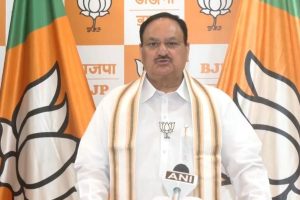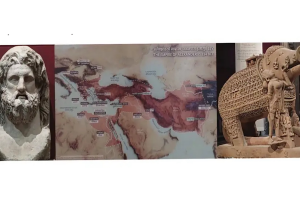It is a decidedly multifaceted National Education Policy whose draft was advanced to the Prime Minister on Friday ~ the day after the swearing-in ceremony.
Undoubtedly it was a noble tee-off, riveted to the primary index of human development. That said, the provision that calls for far deeper reflection, than has been manifest thus far, is the extension of school education to a 15-year course that must be completed in course of the search of learning.
In terms of specifics, this will entail three years of pre-school to be followed by 12 years of conventional education. In the net, the child will have to spend three years in the Montessori, Kindergarten and “play school” stage ~ the latest embroidery ~ before graduating to Class One. Presently, the three-year time-frame exists for the Honours course.
A break-up of the child’s learning module over three years would have been instructive and not least for the guardians who might well be baffled by the proposed experiment. It is imperative, therefore, to furnish the recommendations of the Kasturirangan committee to parents and the school authorities not the least because the Right to Education Act had been an issue of contestation vis-a-vis the minority schools.
The feedback from both segments of stakeholders is vital in the overall construct. It is open to question whether the extended time-frame will make for more intensive learning. In retrospect, one year in Kindergarten and eleven years thereafter in the primary, middle and senior schools was as rational as it was scientific.
In terms of societal welfare, the provision of free and compulsory education from the pre-school stage to Class 12 ~ markedly beyond Class 8 ~ will be readily welcomed. As will the provision on introducing breakfast in addition to the midday meal. The compulsion quite obviously is to draw more and more students to school. Considering that the midday meal scheme has been mired in endemic corruption, it is fervently to be hoped that enlargement of its scope will not lead to a proportional increase in the disgraceful fiddle.
Also to be welcomed from the linguistic perspective is the proposal to teach multiple lanuguages from the “foundational stage”, comprising pre-school and Classes One and Two. This is a critical departure from the CPI-M’s perception of reducing pressure by doing away with English in West Bengal’s primary schools.
Arguably, it would be rational to accord equal stress on English and the local vernacular in the primary stage and also, of course, simple arithmetic. From school to college. Is it really necessary to introduce a four-year Honours programme? And should the under-graduate course be followed by two years of post-graduation, the praxis will be more than a little disproportionate.
As disproportionate as the unprecedented generosity in marking. The blueprint on effecting a paradigm shift calls for reflection.











